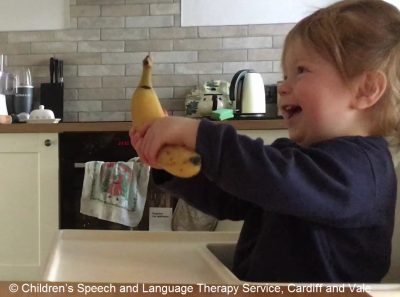My child is very fussy with their eating
It is very common for all children, particularly toddlers, to go through a stage of being less interested in food and to be fussier about the foods that they will eat.
After the first year the rate at which small children grow becomes slower and their appetite will naturally reduce.

However if you are worried about your child’s weight or growth then you should discuss these with your health visitor.
Also, at this stage, children are very busy learning new skills and are less interested in stopping what they are doing and sitting down to eat. Toddlers and young children also are needing to become more independent – they will be eager to feed themselves and refusing food is a good way of asserting themselves!
Don’t worry about what your child eats at each meal or during each day. We all have days when we will eat more or less than others. It’s better if you can think about what your child eats over the period of a week.
If your child is well and has plenty of energy then they are getting what they need!
Remember things like a period of illness, teething or being constipated will also affect appetite and advice for managing these concerns can be given by your health visitor.
Helpful tips
What to do...
- Where appropriate involve them in shopping for food, choosing the family food and preparing the food together.
- Stick to a regular routine of meals at breakfast, lunch and tea-time, and remember that little ones also need a mid-morning and mid -afternoon snack. Leave at least 2 hours between meals and snacks. Eat together as a family as often as possible so that your child sees you enjoy eating.
- Offer a small portion of simple, healthy, and colourful food. Children often feel overwhelmed by larger portions and refuse to eat. If they manage a small portion then they can always ask for more. Praise them for what they do eat.
- Offer finger foods such as small sandwiches, a few chips, fingers of vegetables or fruit that are easy to hold and munch on or breadsticks and a dip – these are often firm favourites as children can do better if they can feed themselves.
- Remember that just because your child says they don’t like a food once that this doesn’t mean that you shouldn’t offer it again. It takes between 12 and 15 times of trying a new food before you decide you like/dislike something!
- Keep calm if the meal is not eaten. Mealtimes should only last 20 minutes at this stage. If your child has refused it do not offer an alternative; calmly clear away the plate without comment and then offer something different at the next meal or snack-time.
- Make opportunities at other different times in the day (not at mealtimes) to play with your child doing fun activities exploring foods. You can enjoy squashing, squeezing, rolling, building, posting and painting with food. This will really help build your child’s confidence to enjoy food without any expectation or pressure to eat it.
What not to do...
- Don’t let your child fill up on drinks before a meal.
- Don’t give a bottle of milk instead of a meal.
- Don’t try and hide food that isn’t liked in a food that your child is happy to eat. They may then refuse to eat that as well!
- Don’t offer an alternative meal or drink if your child won’t eat. Calmly clear the food away without commenting.
- Never coax, force or bribe a child to eat.
- Don’t use toys or the television as a distraction when eating but do use mealtimes as a chance to sit, talk and eat together as a family.
If you have tried these helpful strategies and are still concerned about your child’s eating then please contact the Children’s Speech and Language Therapy Service to make a referral for further support.
Also in this section
Contact Details
Our admin team can be contacted at the address and phone number below.
If you have a message for a specific therapist, please contact our admin team and they will pass the message onto the therapist.
Children’s Speech and Language Therapy Service,
Cardiff and Vale UHB,
1st Floor,
Woodlands House
Maes-y-Coed Road
Cardiff
CF14 4HH
Phone: 029 2183 6585



